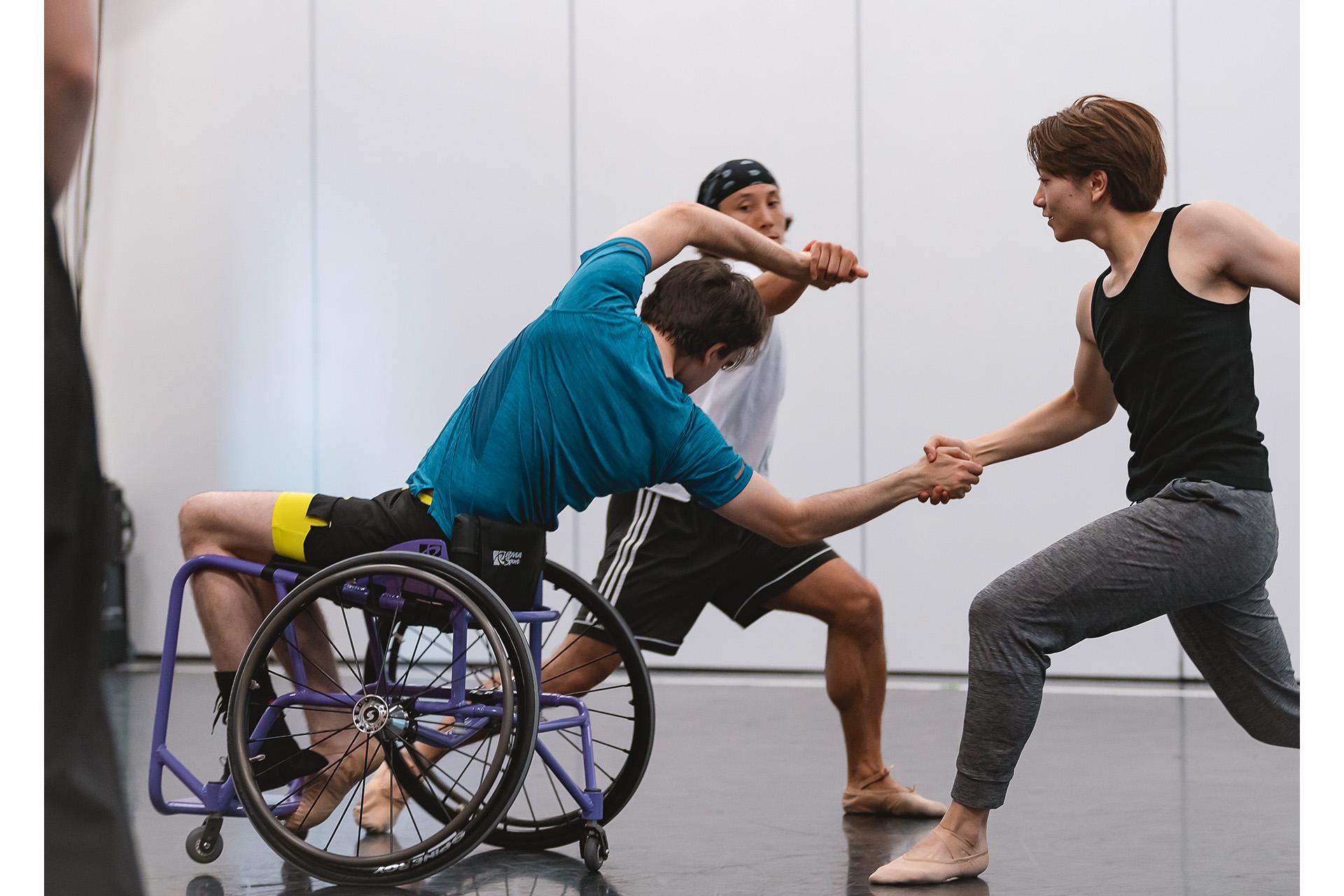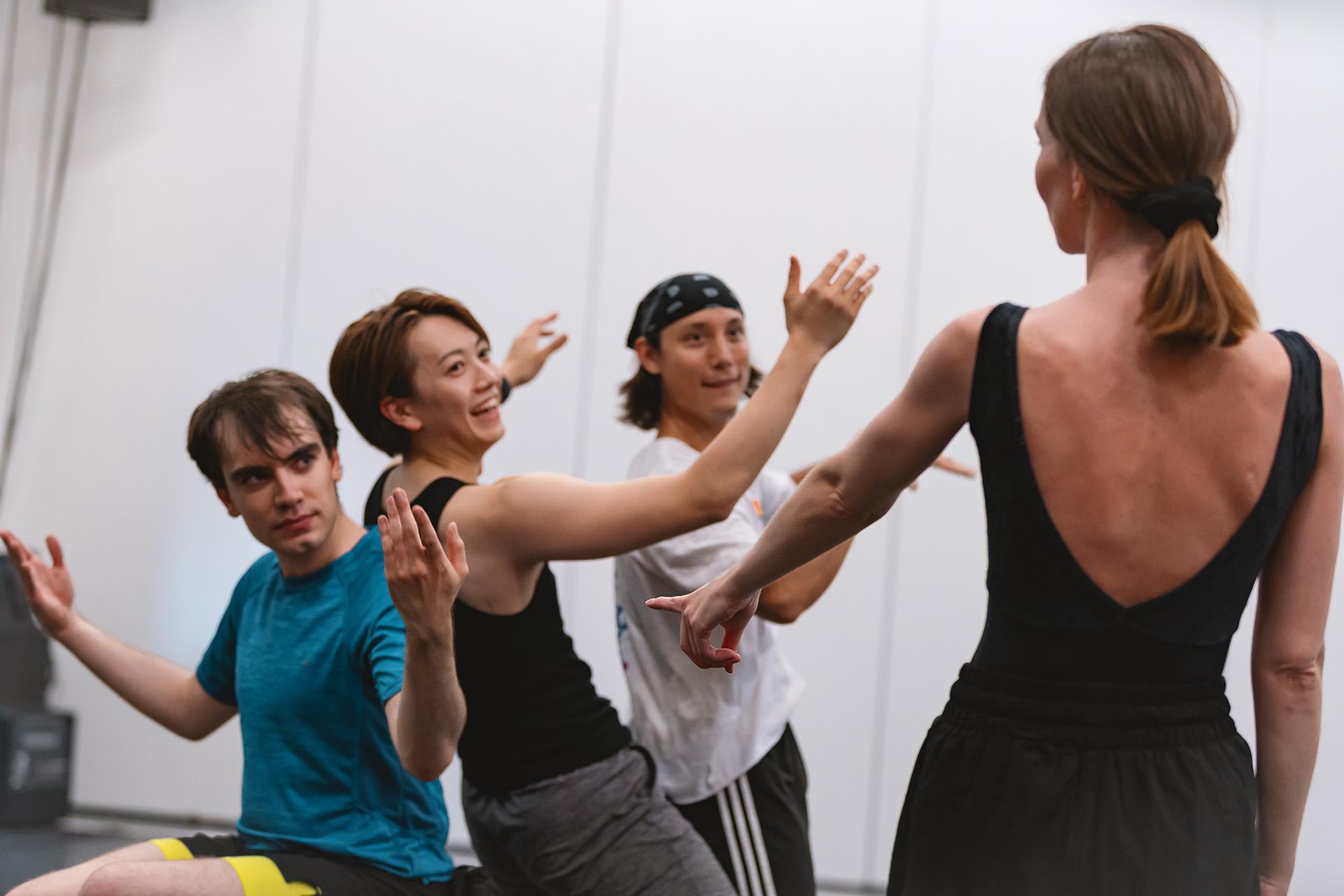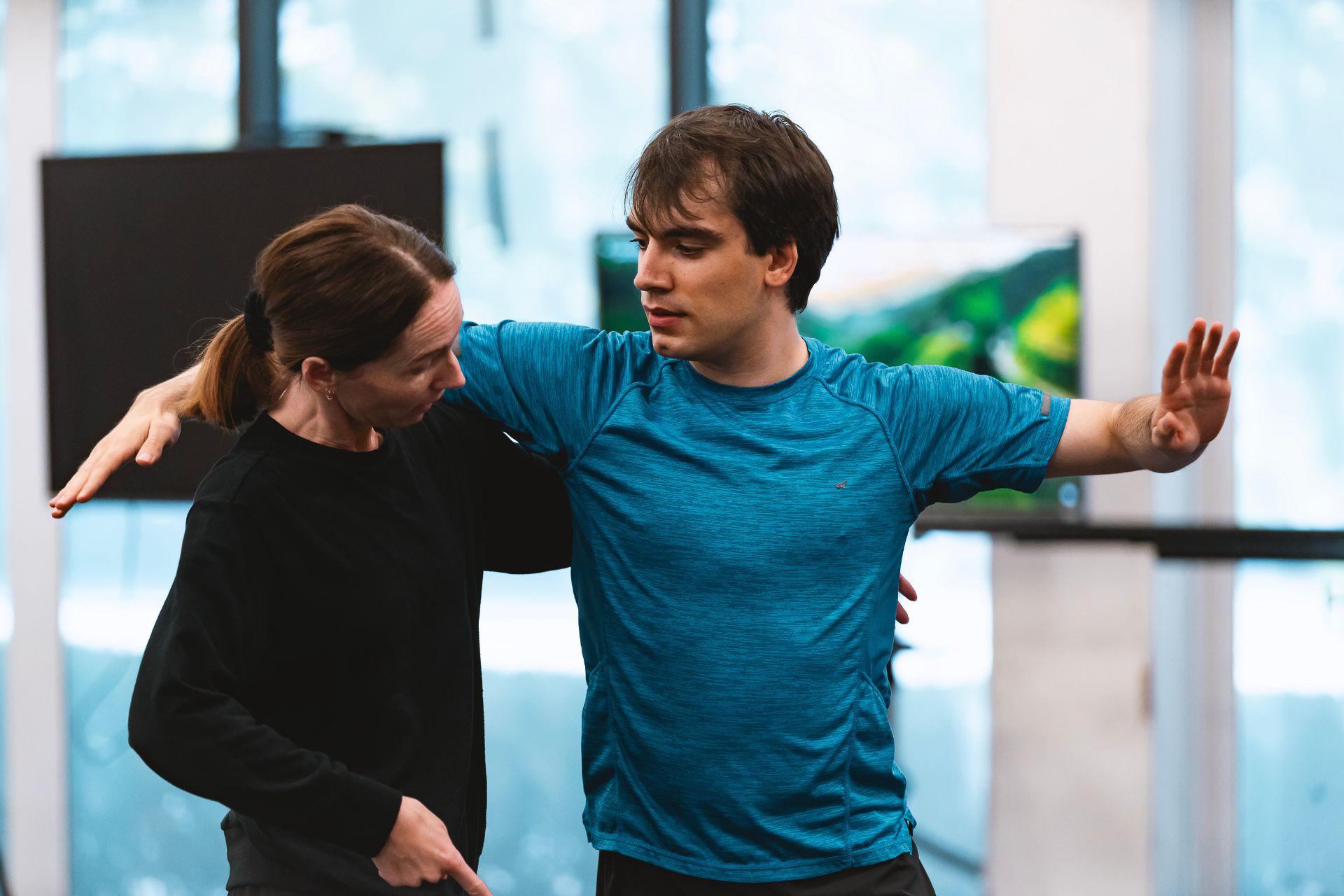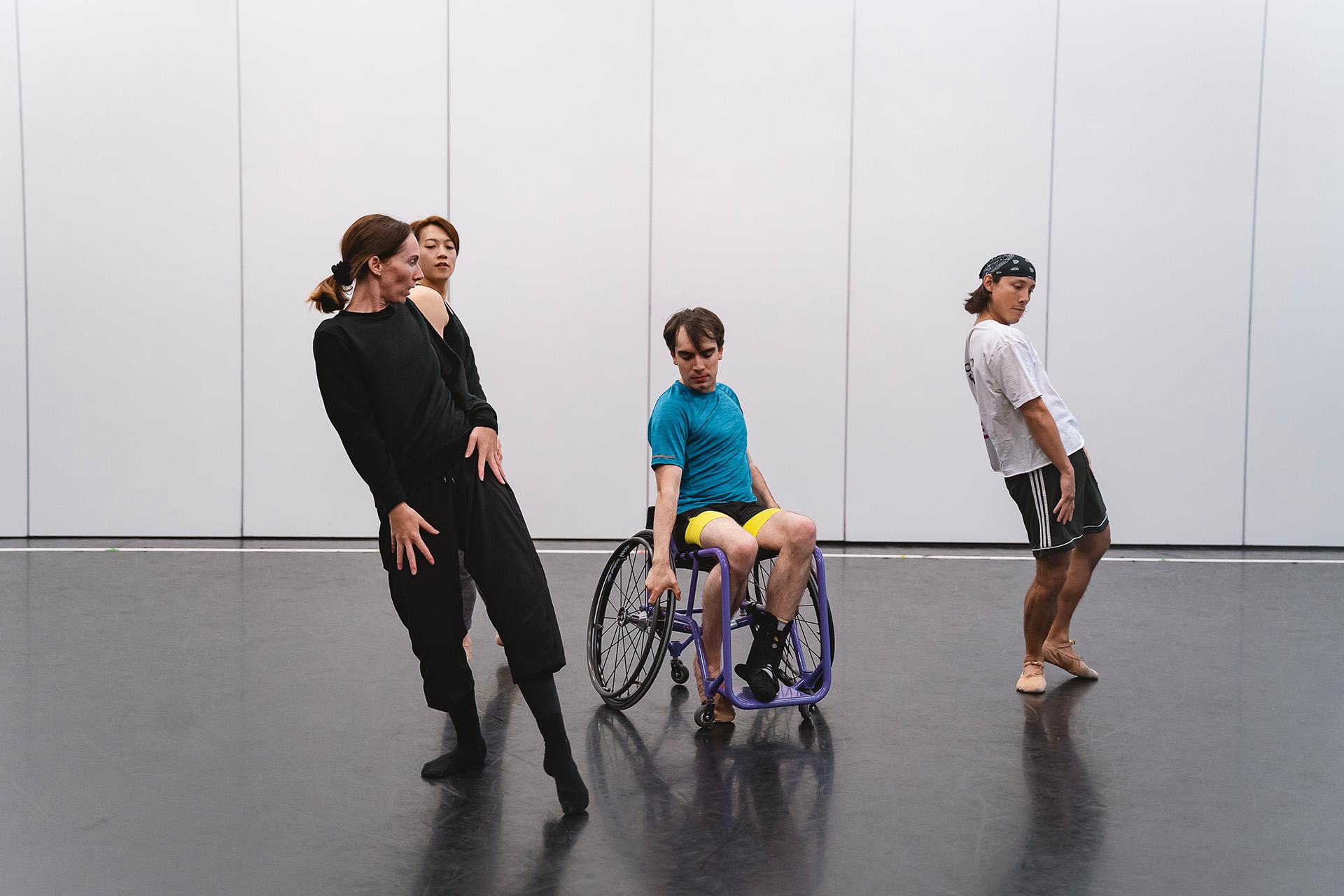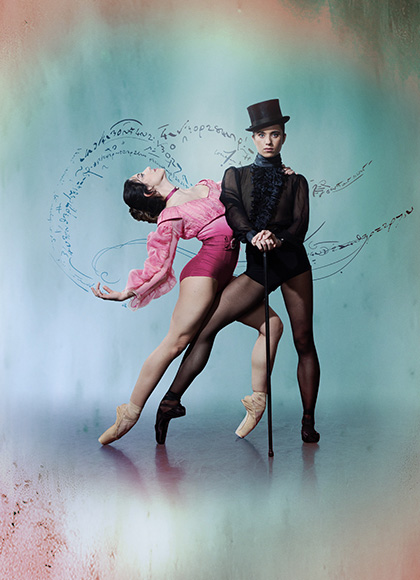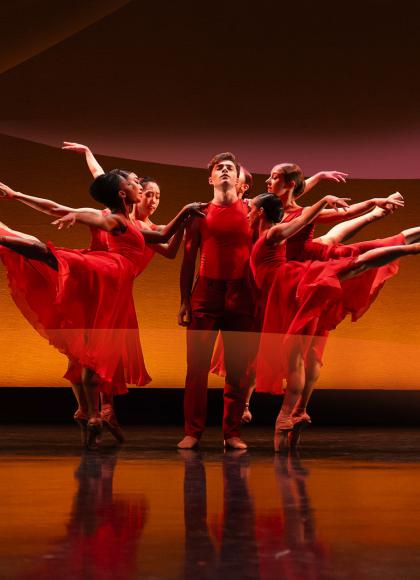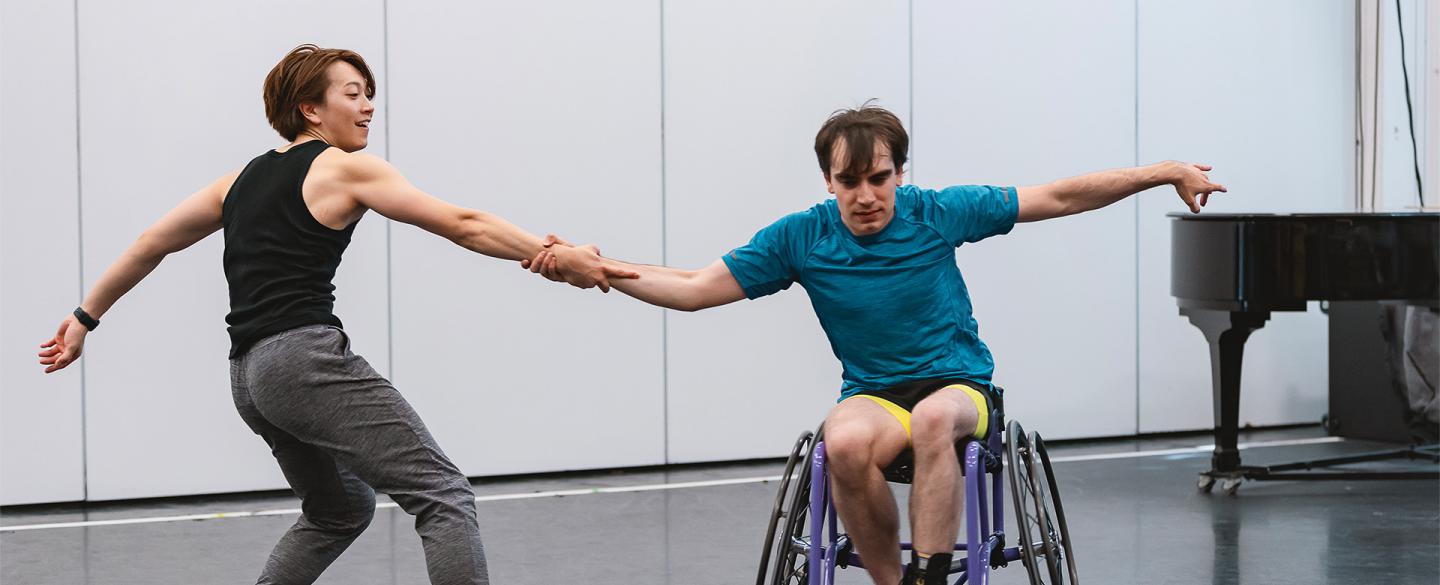
Over the past few weeks, we've been seeing a lot of Guest Artist Joe Powell-Main rehearsing Kristen McNally's Victory Dance, the first piece in our upcoming Three Short Ballets. We caught up with him between rehearsals to learn more about his background as well as what we can expect from Victory Dance.
Originally from Wales, Joe is a disabled dancer and choreographer who uses wheels and crutches in his performance. He trained at the Royal Ballet School Junior Associate Programme, progressing to the Royal Ballet Lower School for four years until unfortunately developing injuries due to a prolonged period of growth, which required knee surgery. Afterwards, complications developed and Joe was also involved in a serious car accident, which led to him having to leave the Royal Ballet School.
Since then, Joe has reignited his love of dance and ballet, graduating with a First Class Degree in Dance and Performance from the Arden School of Theatre. Nowadays he dances freelance and has collaborated and danced with various leading UK ballet companies, such as Ballet Cymru, Royal Ballet & Opera and now Northern Ballet, all whilst championing inclusive dance through his performance, teaching and charity patronship.
What do you love about dance and what inspires you as a dancer?
I love that dance can communicate so many different emotions that are sometimes difficult to express in words. I also personally feel that the relationship between music and movement is hugely important. This is a source of inspiration to me not only as a dancer but as a choreographer too.
As a performer I'm inspired by artists who show their unique personality onstage. My family are also hugely inspirational to me as an artist as well, as even through the most challenging times, they believed in me.
How has your time with Northern Ballet been so far?
So far, my time at Northern Ballet has exceeded all my expectations and has been so much fun. The Company have been so welcoming towards me and it just feels like such a friendly and forward-thinking organisation to work with. Being able to take part in Company class has also been wonderful and meeting the dancers who have asked questions and genuinely been interested in how I translate movement has been great. Because of this positive experience, it's made me wonder whether there could be potential for further possibilities to be explored in the future...
You've collaborated with Kristen McNally a few times in the past. How would you describe her style as a choreographer?
The best way I can describe Kristen's style of choreography is unique and quirky. There are some elements of the classical line and contemporary movement in the work she creates, but there is also an element of naturalism, especially in this piece. There are points where it almost feels as though you are just moving to the beat of the music.
Can you sum up Victory Dance in just a few words?
Fun, energetic and engaging. I am also hoping that the piece, which features three male dancers, will inspire any aspiring male dancers in the audience, which I think is so important.
Back in July you taught a CPD workshop at our Expressions festival on how dance teachers can adapt classical ballet technique for different access needs. From your experience teaching, what's the most important lesson about inclusive dance that you'd like students to take away?
I think the most important lesson is being open-minded. Working in an inclusive dance setting, no two persons access needs are the same. There will be a wide range of different access needs that dance teachers may experience. Each dancer may interpret a movement in different ways, but if the essence of dance and ballet remains at the heart of this, and if you are willing to go on this journey of discovery with your students/dancers, then you're halfway there to making ballet more accessible.
I also know from my experience of leading CPD workshops that so many teachers are passionate about inclusive work but are worried about making mistakes. I think mistakes are a huge part of learning. Having an open line of communication is so important, as I believe that if you keep that open dialogue going you can really break down barriers.
Is there a dream ballet that you'd love to perform some day?
That's a tough question! There are so many!
The Nutcracker will always hold a special place for me because as a child, it was the first ballet I ever performed in onstage. The dream role for me I think would be Drosselmeyer. The character is quite mysterious and dramatic, which I think would really suit me.
Another ballet that also holds a special place for me is Romeo & Juliet, as it was the first ballet that I performed in after acquiring my disability. At that time I performed a more minor role, so I think it would be very interesting for me personally to perform a more substantial role.
I am open to any opportunity to perform a role with strong characterisation and impact. I seem to be drawn to characters that are either the villain of the story, the comic relief or maybe even both. I'm thinking of a character with similar traits to The Queen of Hearts in Christopher Wheeldon's Alice in Wonderland.
There are also some roles in the Northern Ballet repertoire that I've got my eye on!
What are your goals for the future?
I want to continue being part of this art form for as long as I can, performing, choreographing and advocating for access and inclusion.
I am really enjoying being able to continue building working relationships and collaborations as a performer and choreographer with different companies. I have really enjoyed connecting with the Company here at Northern Ballet.
In the work I do, I hope I can inspire others and start important conversations. If I can do that, I will be extremely happy.
